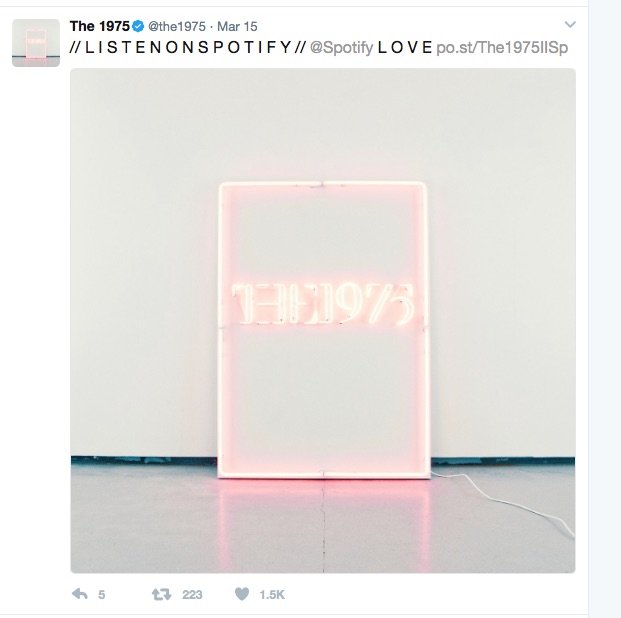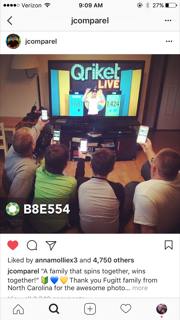When we talk about personal branding online, I think some of us have a hard time defining our personal brand. What makes your social media posts different from everyone else? How would someone know that it is you posting if it didn’t have your username? Do your posts on social media consistently reflect your personal brand or does it seem to be all over the place and depend on what platform you are using? I personally didn’t realize I had a personal brand and when asked to write about it, I wasn’t sure what to say or how I would define my brand. Not only does your personal social media determine your personal brand, but also your professional brand. As the reading from Shields mentions, employers can directly source job through social media and do social media background checks, so everything you post has the potential to affect your career opportunities.
The main platform that employers look at is LinkedIn. This is the most professional platform and the best way to network with people who can help you in your career path. Shields mentions a couple pointers that show complete LinkedIn profile and those include: your industry and location, current position, two past positions, education, at least three skills, a profile photo and at least fifty connections. I’m sure we can all think of profiles that are not professional. For example, this profile with the current position as “the coolest guy in Nashville”
https://www.linkedin.com/in/mikenacke/
There are endless examples of poor LinkedIn profiles and this hurt employment opportunities greatly. But what about the rest of social media and how we react and interact there.
Shields goes on to talk about the different levels of models of branding. He discusses The Standard Model which includes sharing an participating on platforms, having active engagement. This becomes more interesting because it allows one to create a personal brand rather than a professional brand. While there are guidelines that should be followed and ettiquete rules, this is a much more creative opportunity. Shields focuses on the types of profiles for professional brands, however, how does this translate into a personal brand?
Most of us have personal social media account, but what do we use them for. Do you use Facebook or Twitter to share personal experience?. Are you posting dog pictures or selfies on Instagram? What makes your social media, YOUR social media? We explored an endless number of social media guidelines among various companies and they all have pretty standard rules about what you can and can’t post about the company and what use is appropriate for social media. But what if we forget about the idea that employers look at social media as a way to decide whether to hire you. I like to think of personal branding as a way to stand out from other people and in a business such as music (where I am interested) this is a way to get noticed and gain more traction. Take the band The 1975 for example; they have definitely established a personal brand on Twitter:

https://twitter.com/the1975?ref_src=twsrc%5Egoogle%7Ctwcamp%5Eserp%7Ctwgr%5Eauthor
They post every tweet the same way: beginning and ending with two forward slashes and a space in between every letter. Also, rarely do they tweet without a picture. But you would know who this was even if there was no username. This personal branding is a way for people to remember them. With social media being a huge way that bands are discovered (although they don’t need discovering at this point), this type of branding is important.
This goes for Instagram too. One can personally brand themselves based on what they post or the way they post. Jonny who founded a company called Qriket uses emojis to brand himself on social media.

https://www.instagram.com/jcomparel/?hl=en
He rarely posts without including the blue and yellow heart and the blue and gold “Qriket emoji.” This a way for his Instagram posts to stand out to people. When you continuously see something like this, you start to remember it and it becomes familiar and if it is something you are interested in, you will stop to look closer and potentially interact.
Overall, not only is branding important for professional purposes (although the last two examples could be argued to be professional because they are businesses), but also personally. And it’s not all about following guidelines and rules while creating your personal brand. Sometimes it is important to do something that other people do not in order to make yourself a brand and stand out to people who can help you in your career path. It is once you are there and employed that it becomes more important what you post.
I agree with you about having trouble coming up with a solid definition of your personal brand. I would definitely be able to define my personality into a specific brand, but is this really the same as how I would professionally brand myself? In class when we were asked to write down our personal brand, I started writing about the way my friends see me and the three words I used at the beginning of the semester to say how my friends would describe me: loud, sassy, and hungry. Sure that’s funny, but is that really how I want to define my personal brand? If I did that, I would look like the picture of the guy on LinkedIn with the silly and unprofessional bio. Though this may be accurate about some of my platforms, as I grow older I will be changing the way I post, and hopefully I will be able to solidify my own personal brand in a way that can apply to me professionally more.
LikeLike
Great insight on personal branding! I never really realized how my personal social media represents myself so well until we did the icebreaker on the first day of class. It was crazy how much a person can learn about someone by just looking at their social media and not speaking one word to them. This helped me to realize that everyone has a personal brand, regardless of whether or not you can summarize this brand into a sentence or two. When thinking about our own personal brands, the exercises in class were very helpful to establishing a more concrete identity within our social media. You can’t just create a brand out of thin air, it is more of a compilation of so many different aspects of your personality, social media and life.
LikeLike
I agree with you that personal branding can seem like a tough and ambiguous task. Especially for our generation, who grew up in an age where social media was growing and expanding. It seems like our online profiles should be an extension of who we are in front of our friends. We want to use them to vent about work, or as you mention, post cute photos of our dogs. How easy it is to forget that several employers check your personal pages before hiring – if they see a negative tweet about your past position, you probably won’t get the new job. When creating a brand as Shields recommends, it’s important to keep the personal, well, personal. If this means creating separate accounts for professional uses while keeping your politics-heavy personal account private, then so be it. While personal accounts are free to be sporadic, professional accounts must put thought and effort into the content that’s being posted. Seems exhausting! But after some practice, I feel as though many young professionals will be able to master the art of balancing various personas across various social media accounts. For example, using Linked In for sharing field-related articles, and a private Twitter for sharing the results of a Buzzfeed quiz can help segment the different areas of an individual’s life.
LikeLike
I agree that personal branding is a challenge, but I think a good way to overcome that is how and what do YOU want to be as in your profession–and what’s a great thing to remember is your personal brand evolves with you, it isn’t static. I think ways to define your brand can vary industry to industry. In fields like copywriting, CW’s have the opportunity to be a quick-witted and show off their personal flare/voice/style/what have you. For a more account executive position, where management and negotiation skills and experience may be favorited over a creative spirit, it then wouldn’t be wise to claim you’re the “coolest person in ___.” When creating your brand, it is also important to remember who your audience would be, and who you want your audience to be–highlighting your strongest skill set, but also eluding to where you see yourself going in your career. I believe that personal brand can also include personal interests (once again, depending on industry will determine the amount shared in this idea), if you’re a designer with a passion for 80’s grunge, sharing these facts can say a lot about what your aesthetic as an artist could be like!
LikeLike
I also found it a lot more difficult than I thought it would be to come up with or describe my own personal brand. I really liked how you asked the question, “what makes your social media, YOUR social media?” This relates to a small point Shields made that really stuck out to me that stated how the Sandberg case, “demonstrates the opportunities leaders have to define and shape their personal leadership brand via social media.” While it may be difficult to craft our own brands, it is interesting to think about that fact that we have this great ability. Before social media, much of one’s own brand was not necessarily in their control. It may be shaped and formed by other’s word of mouth or unflattering news articles. Today, we have the capability to sign in to any platform and create our brand and have control of our brand. While we know there are many other factors that go into creating a brand, including knowing our primary and secondary audiences, after reading Shields, I felt a little less stressed at the thought of perfecting my brand, knowing I can continue to shape it.
LikeLike
I have felt that the most difficult assignment so far has been identifying my brand. I know my interests and see how often I post with social media. However, I do not think that at this stage my social media is incredibly unique. If I am to create a brand of myself, I need to distinguish myself from the other young female Pitt students with a love of history and animals. I think creating a brand/persona for a career is much easier than creating a brand for yourself as a person. I have noticed some ways on social media that I distinguish myself from others. All of my Instagram pictures have a white border around. This way when you scroll through my page, the pictures appear to float rather than stacked upon each other. I also like to to add a dot at the beginning and end of each caption. I do not know why I started to do this but I have kept it as a trend for my Instagram posts for some time now. Though these are small examples, I still like to think that they apply to how I brand myself to the world.
LikeLike
Loved this post! I loved it because I focus on personal branding all the time! There’s never not a time when I’m not worried about my image via social media. Identifying my brand outside of my business though is difficult. So I can say that is something I need to think about. I like how to asked the question, what makes your social media, your social media… and honestly that’s such a good question because it’s like asking what makes you, YOU! My social media definitely presents itself in a classy / more mature way. I want people to think good things about me. I never want someone to say something negative about me based off of social media! Definitely a good read!
LikeLike
I also agree that I find it difficult to capture my personal brand. Establishing the brand sounds so simple, yet I find it to be one of the most complicated things. Like everyone else, I believe that the situation and job dictate the brand. One of my friends has a very distinct personal brand on social media. It was very well thought out before it was implementing, allowing multiple independent brands to reach out to her and ask her to promote their products through her Instagram. I like to joke with her about always being “on brand,” because she is constantly finding ways to correlate her life to the personal brand she created through social media. She once described it to me as, “I’m an artist. This is what I do. I create art. My Instagram is my art.” Now I think of personal or professional branding in this way. You must have a plan and you must know how to implement it before it starts. You can manipulate things along the way to showcase the brand how you want, but overall, you are creating a portrait of yourself through your social media posts.
LikeLike